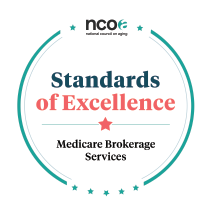Key Takeaways
Medicaid is a health insurance benefit for people with limited incomes. Medicare Savings Programs (MSPs) are a specific sub-set of Medicaid benefits that help pay for the costs of Medicare.
There are four different Medicare Savings Programs, each with different income and resource eligibility limits.
Seniors and younger adults with disabilities who may not qualify for full Medicaid may still be able to enroll in the Medicare Savings Programs.
Medicare Savings Programs (MSPs) are Medicaid-administered benefits that help cover Medicare premiums. These programs are available for those on Medicare with limited incomes and resources who do not qualify for full Medicaid.
Qualified participants need to meet certain income and resource levels and have Medicare Part A to qualify. The financial eligibility guidelines are set by law but states have the option to raise or, in the case of the asset test, eliminate these guidelines (MSPs may be known by different names in some states).
Applications to participate in this program are generally submitted through a local Medicaid agency. Eligibility is renewed on an annual basis.
The 4 Medicare Savings Programs and Their Income and Resource Eligibility Limits
1. Qualified Medicare Beneficiary (QMB)
Designed for people with an annual income less than 100% of the Federal Poverty Level (FPL) and resources under $7,860 if single or $11,800 if married. This program will cover Medicare premiums (Part A and possibly Part B), deductibles as well as copayments and/or coinsurance.
Monthly income limits include a $20 general income disregard; Alaska and Hawaii have slightly higher limits:
- Residents of 48 states & District of Columbia: $1,083/$1,457 single/married
- Alaska: $1,349/$1,816 single/married
- Hawaii: $1,243/$1,673 single/married
2. Specified Low-Income Beneficiary (SLMB)
Designed for seniors/adults with disabilities and an annual income between 100-120% FPL and resources under $7,860 if single or $11,800 if married. If eligible, SLMB will cover the Medicare Part B premium ($148.50 in 2021).
Monthly income limits:
- Residents of 48 states & District of Columbia, $1,296/$1,744 single/married
- Alaska, $1,615/$2,175 single/married
- Hawaii, $1,488/$2,003 single/married
3. Qualifying Individual (QI)
A limited program (sponsored by block-grants to states) available on a first-come, first-serve basis. People with Medicare may qualify with an annual income between 120-135% FPL and resources under $7,860 if single or $11,800 if married. This program may also cover the Medicare Part B premium.
Monthly income limits:
- Residents of 48 states & District of Columbia, $1,456/$1,960 single/married
- Alaska, $1,814/$2,445 single/married
- Hawaii, $1,672/$2,251 single/married
4. Qualified Disabled Working Individual (QDWI)
A program for adults under age 65 and disabled who have recently returned to work but are no longer eligible for premium-free Part A. People may qualify with an annual income at or below 200% FPL with resources under $4,000 if single or $6,000 if married. However, there are additionally earned income disregards that raise the income ceiling for QDWI. This program may also cover the Part A premium.
Monthly income limits include a $20 general income disregard and other earned income disregards; Alaska and Hawaii have slightly higher limits:
- Residents of 48 states & District of Columbia: $4,338/$5,832 single/married
- Alaska: $5,401/$7,269 single/married
- Hawaii: $4,977/$6,697 single/married
Note: The limits above are federal guidelines. Some states may choose to increase the federal guideline amounts or eliminate the resource test altogether. Refer to individual state eligibility rules.
Medicare Savings Program Advantages
Seniors and younger adults with disabilities who do not qualify for Medicaid may enroll in a Medicare Savings Program.
There are two major advantages to enrollment:
- Saving money on Medicare costs. Three of the four MSPs cover the Medicare Part B premium, which in 2021 is $148.50 a month for individuals who receive help with their premiums . Enrollment in MSPs puts over $1,700 back into the wallets of seniors/adults with disabilities each year.
- Automatic Extra Help. Enrollment into MSPs automatically “deems” a person eligible to receive the Medicare Part D Low Income Subsidy (LIS/Extra Help). This benefit helps pay for prescription drugs and is estimated by the Social Security Administration to have an annual value of $5,000. Furthermore, if a senior/adult with disabilities is not already enrolled in Part D, they will have no late enrollment penalty if they receive Extra Help.
If you believe you/someone you know may be eligible for these programs, you can get assistance from:
- The National Council on Aging's network of Benefits Enrollment Centers (BECs). BECs provide help for older adults/persons living with disabilities to apply for all of the benefits they may be missing.
- BenefitsCheckUp® is a free online tool that screens for eligibility for thousands of programs that can pay for health care, prescriptions, and more, including Medicaid and the MSPs.
- Your local State Health Insurance Assistance Program (SHIPs). SHIPs are federally funded to provide free, objective assistance to people with Medicare and their families, and also can help you apply for the Medicare Savings Programs and Part D Low Income Subsidy/Extra Help. Find your SHIP by visiting www.shiptacenter.org or calling 1-877-839-2675.
How can I connect with a trustworthy Medicare broker to learn more about Medicare Savings Programs?
Learn more and connect with a licensed Medicare broker that meets NCOA’s Standards of Excellence. These broker options are committed to serving your Medicare selection needs and priorities, including understanding the Medicare Savings Programs options available to you, at no cost to you.






